Hamas Chief In Egypt For Talks On Gaza Truce And Hostage Release
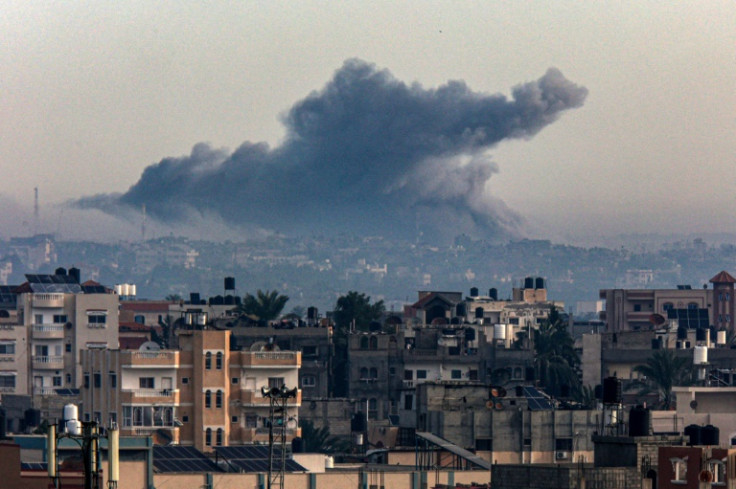
The leader of Hamas visited Egypt on Wednesday as hopes grew that Israel and the Palestinian militant group may be inching toward another truce and hostage release deal in the Gaza war.
The Qatar-based Hamas chief, Ismail Haniyeh, arrived in Cairo for discussions on the "aggression in the Gaza Strip and other matters", the group said in a statement.
He was due to meet Egypt's spy chief for talks on "stopping the aggression and the war to prepare an agreement for the release of prisoners", a source close to the group told AFP.
Haniyeh -- who earlier met Iranian Foreign Minister Hossein Amir-Abdollahian in Qatar -- was heading a "high-level delegation" to Egypt, a frequent mediator between Israel and the Palestinians, the source said.
Israeli Prime Minister Benjamin Netanyahu had told hostage families late Tuesday that he had twice sent his spy chief to Europe in efforts to "free our hostages".
"It's our duty, I'm responsible for the release of all the hostages," the premier told the relatives of some of the 129 captives still believed to be held in Gaza. "Saving them is a supreme task.
"I have just sent the head of Mossad to Europe twice to promote a process to free our hostages. I will spare no effort on the subject, and our duty is to bring them all back."
US news site Axios reported Monday that Mossad chief David Barnea had met CIA director Bill Burns and Qatari Prime Minister Sheikh Mohammed bin Abdulrahman Al Thani in Europe.
Qatar, backed by Egypt and the United States, helped broker a week-long truce in November in which 80 Israeli hostages were freed in exchange for 240 Palestinian prisoners.
Axios has also reported that Israel had offered to pause the fighting for at least one week in exchange for more than three dozen hostages held by Hamas.
The war began when Hamas militants burst out of Gaza on October 7, killing around 1,140 people in Israel, mostly civilians, and abducting about 250, according an AFP tally based on Israeli figures.
Vowing to destroy Hamas, Israel began a campaign of bombardment, and then a ground invasion, that Gaza's Hamas-run health ministry says have killed 19,667 people, mostly women and children.
Israeli President Isaac Herzog also said Tuesday his country was "ready for another humanitarian pause and additional humanitarian aid in order to enable the release of hostages".
Palestinian militant group Islamic Jihad, meanwhile, released video footage it claimed showed two hostages alive in its custody in Gaza, ramping up pressure on Israel.
The UN Security Council was set to vote Wednesday on a resolution calling for a pause in the conflict, three diplomatic sources told AFP, after two previous votes were delayed as members wrangled over wording.
The latest version of the text calls for the "suspension" of hostilities, the sources said.
The US vetoed a previous ceasefire resolution, sparking condemnation by Palestinian and humanitarian groups, which urged more action to help civilians caught in the conflict.
For now, fighting was raging unabated after Israeli military spokesman Daniel Hagari said Tuesday that troops were expanding operations in southern Gaza's Khan Yunis area.
"We must dismantle Hamas, and it will take as long as needed," he said, as the army said 133 soldiers had been killed since ground operations began in late October.
Hamas sources said Wednesday at least 11 people were killed overnight in Israeli strikes across the Gaza Strip.
In Khan Yunis, residents searched by hand through the rubble of a building completely flattened by a strike.
The house was "full of people, full of human beings, why did they bomb it? What's the reason?" said one distraught young resident, Amr Sheikh-Dib.
"We managed to remove some bodies, but where are the rest of them? What did these people do?"
The UN estimates 1.9 million of Gaza's 2.4 million residents have been displaced and concerns are growing about the limited ability of aid groups to help.
"Amid displacement at an unimaginable scale and active hostilities, the humanitarian response system is on the brink," said Tor Wennesland, the UN's special coordinator for the Middle East peace process.
Gazans are facing a perilous winter, and the UN children's agency warned that "child deaths due to disease could surpass those killed in bombardments".
The United States, while strongly backing Israel, has also urged it to protect civilians in Gaza.
The call was echoed by British Foreign Secretary David Cameron, who on Tuesday called on Israel to take a "much more surgical, clinical and targeted approach" in its battle against Hamas.
The Gaza war has sparked fears of regional escalation and seen Israel trade deadly cross-border fire with Iran-backed Hezbollah militants in southern Lebanon.
Yemen's Iran-backed Huthi rebels, meanwhile, have repeatedly fired missiles and drones at vessels passing through the Red Sea that they say are linked to Israel, in a show of support for Palestinians.
Major shipping firms have diverted their vessels as a result, taking the far costlier route around Africa.
The United States on Monday announced a new multinational naval task force to protect the waterway leading to the Suez Canal, through which more than 10 percent of global trade transits.
It now includes warships from the United States, which has its USS Dwight D. Eisenhower aircraft carrier in the area, as well as Britain, Canada, France, Italy and other countries.
Malaysia meanwhile said it had barred Israeli-flagged cargo ships from docking at its ports in response to Israel's actions in Gaza, which it said ignore "basic humanitarian principles".
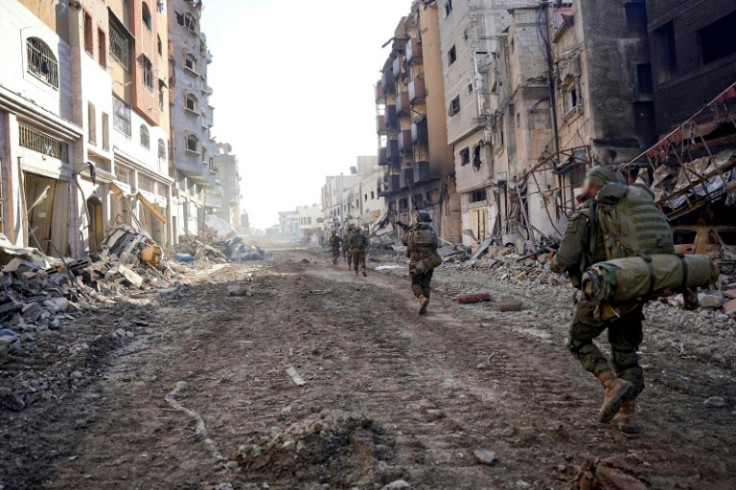
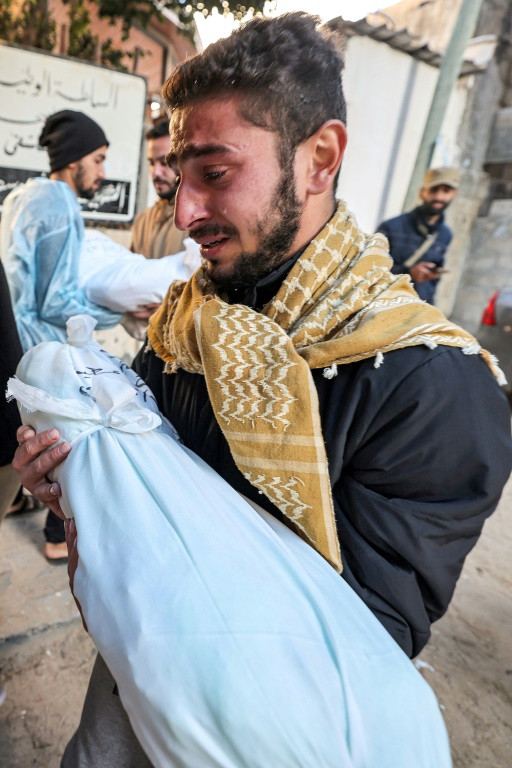

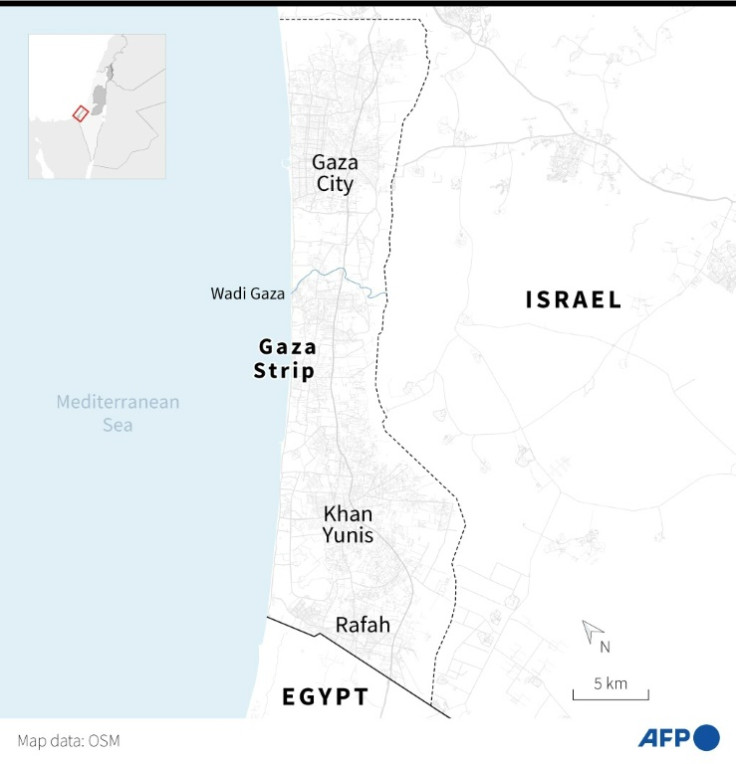
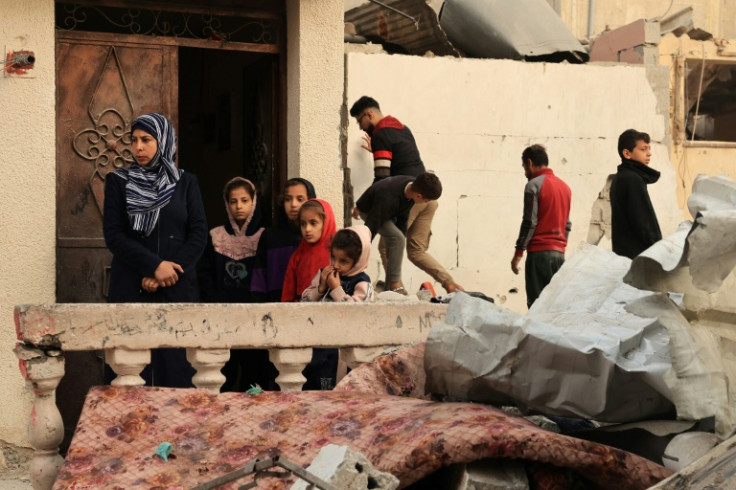

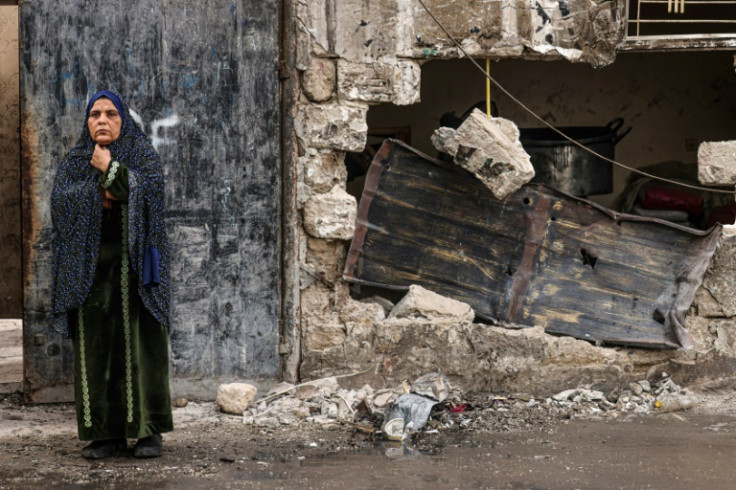
© Copyright AFP 2024. All rights reserved.





















